|
When I started this blog ten years ago, I had no idea what I was going to do. I had just lost my teaching job the month before, and I wanted to be a storyteller. More than that, though, I wanted to survive. I wanted to survive as a mother, as a creative person, and as a human. The job I'd lost was our main income source. It was my sole professional identity. It was my community and my calling, I thought. And it was gone.
Within the next two years, I'd also lose my mother. We'd lose a business. We'd deal with vehicle accidents and illnesses, acute and chronic. There would be so much stress, and pain, and grief. I would also win a year-long fellowship to assist with my storytelling. I would get a contract to create a storytelling-based curriculum for an intergenerational childcare. We would start homeschooling our child, and I would move from classroom teaching and substituting, to working in a Waldorf-inspired preschool program and tutoring students from age 6 to age 20. There would be so much growth, and joy, and beauty. So, what if I didn't question it? What if I stopped expecting my life to look differently than it does. There are so many expectations -- I'm 46, so I should have this much in savings, this much status in my career, this much clout, this much... It's so quantitative. I recently read The Hazel Wood, by Melissa Alpert. The stories that run through this book are both like and unalike traditional stories. They are bloody and weird, as many traditional stories are, but they are also wild and unpredictable and without an internal balance and center. They are driven by fear, as are many traditional stories. There were references in the book to so many of my beloved tales, and the re-workings that fed my adolescence. What I came away with, though, is how much I have missed the stories. I still get to tell stories, sometimes. I tell gentle stories to the little ones in my care. But my telling-out opportunities dried up with the advent of the pandemic, and haven't come back in any strength yet. That's okay. I've been really busy-- haven't we all? -- but I am starting to miss them. The stories. And I miss knowing my life as a story. I miss finding meaning, and finding hope. Winter break seems to be when I start to find my way back each year. I hope maybe this time, I can stay a little more connected. A little more in tune with the stories. I hope I can find my way to writing, and thinking, and dreaming a bit more. And I hope I can just let it be, my life, and look at its shape with a little more distance, and a little more magic. Not questioning so much, "Am I doing it right?" but perhaps, "What next?"
0 Comments
It's never easy to start writing again. To sit still and let the words come as they will. I've cut myself off from the words, from the writing and the making and the creating. Creativity is like some kind of magic spring -- the water only flows if you let it flow, and the well becomes dry if the water cannot flow out of it.
I haven't been telling, or consulting, or writing. I've been teaching, but finding my way in a new school, with such different structures and parameters from those I'm accustomed to... And I feel adrift. Sad. Did I let it go too easily, that life of creating, that took me to warm beaches and let me share my deep joy and love of story with people? I asked the Source for stability, and to put me back in the classroom. And I got what I asked for. So now what to do with it? I'm going to offer another story/reading course later this spring. Just two weeks, because four is too much. I'm stepping away from strictures around what I can make, and what I can support, and doing what I can. There's been no activity here on the blog for four months, and nothing new offered since diving deep and coming out of the forest -- which was MAGICAL, people; simply MAGICAL -- so maybe I'm forgotten. That's okay. I'll be doing what I do here, and trying to find myself again under it all. I'm asking questions these days -- How can one be a Waldorf teacher, teaching out of the wisdom that comes through anthroposophy, but not be in a Waldorf school (not even homeschooling)? Why, in the midwest, is Waldorf only available to those who can afford private tuition? And is a rigorous, academic-focused curriculum, focused on "data-driven" goals, really the best we can offer children affected by systemic oppression? Really? How can I bring storytelling, beauty, music, art, practical activities, developmental movement, and reverence into an already packed school day? Is there value in sharing stories, music, art, poetry, with children who may lack the background information to fully comprehend and learn from the piece? Are things only of value if they instruct, and if we can teach children to analyze and comprehend? To GRASP? Or is there something intrinsic? If eyes were made for seeing, is beauty really it's own excuse for being? And how on earth has bedtime gotten so late at my house? There's no end to the questions. And I find myself wanting to hide, even here, even now. I'm afraid to be seen -- being a teacher is so very public. Can I write about my faith? About my spiritual practices? About my struggles? Are teachers allowed to be whole people? I'm open to conversation around any and all of these questions. And if you can tell me a story along the way, I'd love it. My well is feeling very dry. 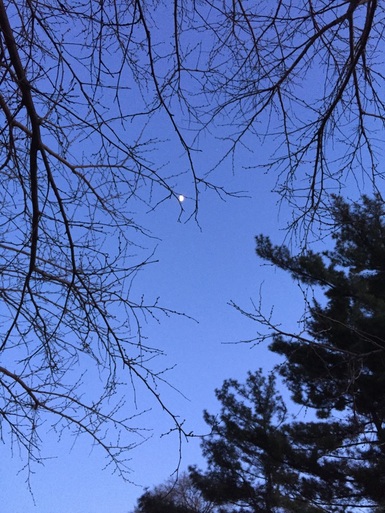 I believe in this work. I believe in the power of fairy tale work to change lives. This is a way to make shifts that are deep, powerful, and affirming of your story. However, this is subtle work. I've been asked, "What will I really get from this work?" and it's so hard for me to describe. I've tried. All I can ask, is that you try it. And maybe for you, it won't be that big of a shift. You may find only a tiny glimmer of light. When it's really dark, tiny lights are so bright. Having done this fairy tale work, using it daily to re-examine my life story and my current place on the journey, I can truly say that it works, that the little changes add up, and that the deeper I go, the more amazed I feel. This work can change your relationships. It can open new doors. It can alert you to something you've been overlooking. I want you to experience it. For all these reasons, I have chosen to drop my price for this course. Not because I thought the price was too high -- It is worth every penny -- but because I want it to be accessible and available. We are going to start later, too, as I've heard from a number of people that December 26 is just too much in the thick of things. I understand. Let's wait a bit, and I'll whisper these stories into the quiet of the new year. $27. I'm holding space for you throughout the deepest darkness of the year, and as the light returns, we are going to make this journey together. Won't you come along? What does it mean to read your life like a fairy tale? We can point to the Hero's Journey, or the Heroine's Journey, but how do we listen to the story our own lives are telling and determine what part of the arc we are at?
The complication that makes this work so worthwhile, is that the story can be said to begin at so many places in our lives. We can read the arc of every relationship, of every job or career move, of every change of place, as its own distinct story. Each strand of story is woven, braided with other strands to create the multicolored, shimmering, living rope of your life. Let's take a familiar example of Little Red Riding Hood. We can say that the adventure begins with the girl setting out into the woods with her basket. but perhaps it really begins with the red hood itself. We can read this story, and say, "oh, this is like when I went off to college, and I met that guy in the quad..." That assumes that we are the heroine of the story, that we are the central character. And it's not wrong. The scene of Red's encounter with the wolf in the forest is the turning point of the story, the moment of decision. You have thought of a moment in your own life that felt that big, and seemed to push your life down a path you hadn't wanted. Once we identify this piece of story, this potent scene that stands out so sharply against the rest of the narrative, we are ready to begin working with our own story. It's important to identify the work to be done here. Do you feel shame over the encounter? Maybe you are wanting to understand what happened next. Perhaps the emotion that arises with the story is one of rage, and perhaps it's a gentle, happy wonder -- "Look what would have been different if I hadn't met him! I would be someone else." We can look for echoes of that moment -- where did it happen again? And again? And where is it happening RIGHT NOW? Where are you giving the time of day to someone or something you know to be destructive? Where are you taking a risk to move beyond prescriptions? It's important to create these scenes as vividly as possible -- recreate that moment in your mind. Feel what you felt. Smell what you smelled. Hear the music. See if there are details that you thought you had forgotten. Can you shift the view? Can you see the story through the wolf's eyes? Through the hood's eyes (if hoods had eyes...)? Are you, in your life, in one of those other roles today? This is just the beginning. If something comes up that feels too big, let it go, or take it to a professional. I'm not a counselor, social worker, psychologist, or pastor. I'm just a fellow traveler. You story is waiting, and yet, it is running even now. You are in this story. Let's take a look around together. This summer, I got to go to the National Storytelling Network's summer conference for the first time. It was amazing to be surrounded by storytellers from around the country, and some from other countries, who were exceedingly welcoming, supportive, and kind. The day before the official conference opened, I took part in the Healing Story Alliance's pre-conference workshop, led by Lani Peterson. Lani does deep, world-changing work in Boston with people who have experienced homelessness or incarceration, and with other community members, facilitating their understanding of one another through storytelling. There was a lot A LOT of stuff that I took away from that workshop. I'm not a trained psychologist, so much of it went over my head, but there was a part of the morning when we talked about helping people to tell their stories in order to re-construct their sense of self, helping them to "thicken" their stories. We go from the old normal -> through an experience of liminality and "undoing" our story -> to arrive at a new normal, where we are intentional in our responses. We then can return to the beginning of the story and help others. This is the hero's journey, folks. We get to take that fairytale, mythic path every single day. But it goes deeper. We get to take that path every single moment of the day. In the pause between stimulus and response, where we make a conscious choice, we are responding to the call to adventure. That moment is sometimes briefer than the blink of an eye. In every breath, in every response to our children, in every time we choose to speak up against hatred, and in every moment that we respond out of choice and not out of habit, we are heroes. We can have a thousand epic journeys in every day. Those tiny, miniscule stories are woven together into the novel of our lives, the huge bildungsroman that tells of our journey from innocence to knowing, and then, we hope, into wisdom. There is so much more to pull out of those few short hours, and I hope to bring you examples and insights over the next few weeks. If you missed last night's facebook live, I have the video for you right here! Enjoy! I'm a woman in America. This means that my life has been defined by certain outside forces. I'm a queer woman in America, in a relationship with a woman. We have a child. I'm white, middle class, educated. We live in a house. Somehow, the bills get paid.
All of these facts contribute to my experience of the world. It would seem that I ought to work from a "modern" understanding, that I ought to relate mostly to stories of "modern" women. Where I find my deepest resonance, is with fairy tales. Perhaps, to you, fairy tales are unrealistic, misogynistic tales, told to keep little girls in their place, emphasizing making a good marriage and giving up agency. I find them to be the opposite. Perhaps it is the fairy tales I choose, but my heroines are brave, resourceful, kind, and adventurous. They do not wait around to be saved. They save their loved ones, trick giants and kings, weave shirts of nettles, create worlds. They are invincible in their vulnerability. Recently, I worked with a woman with the tale of Tatterhood. For her, on first hearing, the story was of how the brave and exciting Tatterhood gave up what and who she was, became acceptably beautiful, in order to marry the prince. "Wow," I thought. "That is so far from my reading. Why is that?" Together, we explored questions of what it is that is being unveiled when Tatterhood removes her hood. What conditions have to be in place for us to remove the veils we use to keep ourselves safe from others? What is the question we need to hear in order to take that step? And how do we get someone to ask when we need it? Shift. Change. I love these stories. I love the depth that I can get to so very quickly through their wishing-well of images and archetypes. I would love to share them with you. Fairy tales, not necessarily in their scholarly definition, but allowing for a few other folktales and the occasional legend or myth, are the life's blood of childhood. Fairy tales give us a map for the journey of life, and if parents can see through the time-bound elements of societal values and lessons, they can help children to navigate the treacherous waters of learning to live as a human being with wisdom and courage.
That's a bit of a weighty introduction. Still with me? Of course you are. Here, then, are five of my favorite fairy tales to share with children who are stepping through the doorway from early childhood dreaminess into the open-eyed world of learning to know things for oneself. These stories are perfect for older five-year-olds right up to middle school, but six and seven might be the ultimate age for enjoyment.
So, there you have it. Five of my favorites. The websites these links take you to are worth exploring -- so many great stories to share with the kids in your life! Read aloud, or learn to tell them yourself in my upcoming Be a Storyteller ecourse! (details coming soon!) And remember, when you come to something that makes you unsure about telling a particular story, whether it's a turn of phrase that rings false in your ear, or a character who meets an end that seems too harsh, take your time. If it's not the right story for you or for your listener, then just let it go, and find the story that's your Goldilocks moment -- Just Right! Do you ever say to yourself, "I'm starting something new! A new chapter starts today in the book of me! I'm going to be a new person, starting now! Everything is changing!" and then, three days later, you're in your jammies, zoned out on facebook, eating entire bags of Lundberg's brown rice cakes, wondering where all that momentum went? No? Just me? It happens to me a lot. I get this whoosh of power and energy, and I get really excited about a new project or exercise regimen or foodway, or I feel super compassionate and I just love everyone, and I want to do amazing things in the world. Then the laundry piles up, and I wake up late, and I yell at the dog... and it all fizzles out. Stephen Pressfield calls this resistance. I call it blind, back-pedaling terror. To Start a New Chapter, do this:
The voices sound like this : "It isn't safe. No one will love you if you grow and change. You're failing. You'll fail again. You have bills to pay and Responsibilities. YOU"RE DOING IT WRONG!!!" I think I've mentioned those voices before. And I've talked about starting over, and a fresh start. It's a recurring theme here. Life is a constant dance of renewal; we start over, and over, and over, and over. Every day, every hour. But this time, this time I really mean it. I'm laughing at myself now. Because I say that every time. What's different now? What's different is that I am taking action. Real, concrete action. I am not sitting around, wishing I could make something happen. I am feeling such fear, and moving forward anyway. I have help this time around, too. I have a group of wonderful women who have agreed to be guinea pigs for one thing, a business mentor who is smart and funny and has cute dogs (dogs help any venture!), the support of my awesome wife, and a new sense of determination.
The stakes are a little higher. I'm eager and scared and joyful and a little nostalgic for when I could just get up and go to work, but this is so important. This time, I hear the call, and I have to rise to meet it. I've been holding back so long, out of fear and a need for security, but Life doesn't need that. My gifts are needed in the world. That's why I'm here. How dare I hold anything back? And it goes for you, too. Your gifts are needed in the world. That's why you're here. How dare we hold anything back? 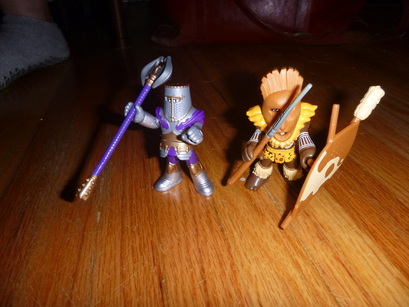 photo by AXL. These toys could head out on a crazy adventure as puppets for your story. photo by AXL. These toys could head out on a crazy adventure as puppets for your story. Learning to tell stories can be daunting. I get that. Even seasoned Waldorf teachers or homeschooling parents can feel that fear, and the Waldorf grades curriculum is built on storytelling. Letting go of always reading to your child, or turning on an audio book or Sparkle Stories story, or a movie, can be really, really scary. So start small. Here are three easy ways to start telling stories to your children. 1. Puppets. Don't panic. Puppets can be really easy; everyday objects can be magical. Ask Dan Hurlin, whose puppet theater full of forks and spoons enchanted my college classmates. Pick something up -- a toy, a cup, a mitten -- and let it speak and move. This type of story can charm three and four year olds to stillness. Puppet wakes up, has a tiny adventure, and goes to sleep. Fin. Your lap, maybe draped with a playsilk or scarf, makes a perfect stage; so does the kitchen table, or the dashboard on the freeway-turned-parking lot. There can be an epic adventure, or there can be next to nothing. Just try. 2. When I was a kid. Can you remember anything from your childhood? Stories from your family or longtime friends? Children love real, true stories of your own experiences, especially when the story opens up a new perspective on you. Stories where you got into trouble, where you made a bad decision, where things didn't work out so great, these are a real gift to your child, who will find in them permission to fail, to learn, to try again. You become human and whole through these stories. Tell stories of your triumphs, too -- spelling bee victories, hard-won first fruits of your own garden, the Big Game. Humor and compassion for your young self and for the other characters in your story will feed their need for goodness. Tell these stories. They become part of your legacy. 3. Movies, Books, TV shows. My mother told me the entire plot of Anne McCaffrey's The White Dragon on a road trip to Nebraska to visit my grandparents. She later told me she'd done this to keep herself awake on the long, straight highway through the cornfields, but at the time, I only knew that here was a fantastic, beautiful story. So tell your favorite plots; re-enact favorite scenes with voices and gesture. Of course, there are limits, and you know what your child will enjoy and what will be unpleasant or scary for them. The best part is this: if you forget, make it up. This is your chance to fix the ending you hated, to fill in the details your mind has let go. Your imagination and intuition may create just the pieces your child needs most. I believe deeply in the power of stories to heal, help, and guide. Pick any one of these, put down the book, turn off the radio, and let your own voice and the magic of the story sweeten your time with your child.
|
AuthorHi. That's me. I write, sometimes, about parenting, storytelling, and about living a life with stories. Categories
All
Archives
April 2023
|
||||||||

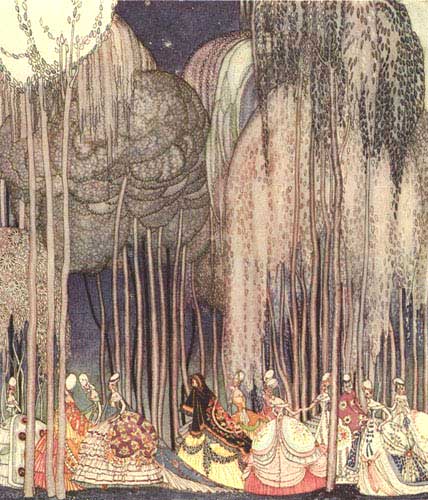
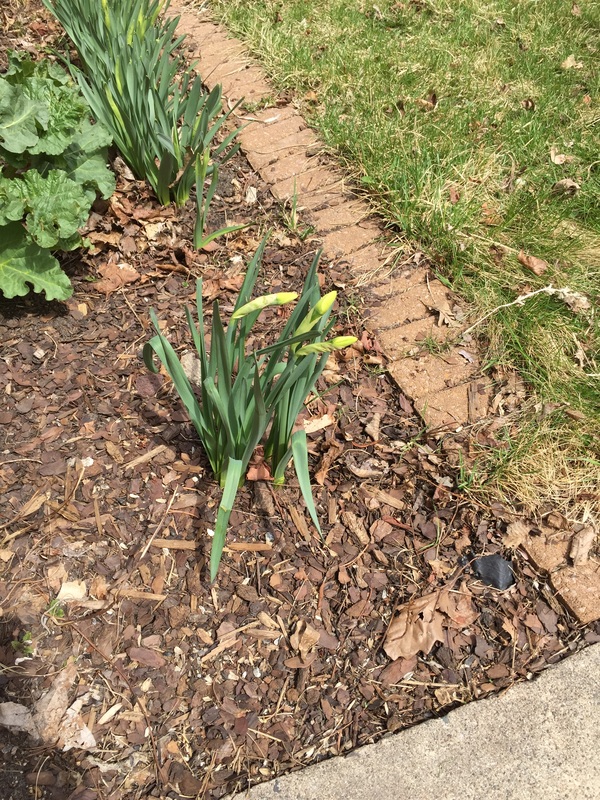
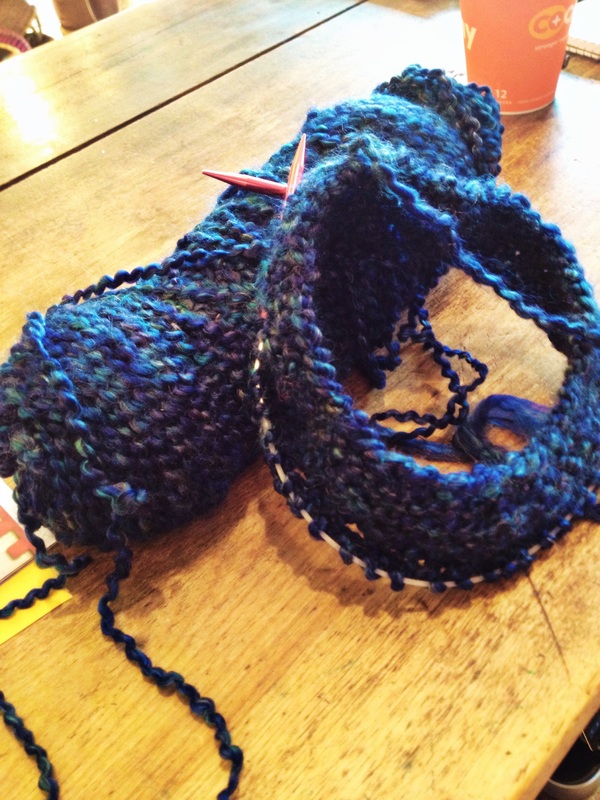
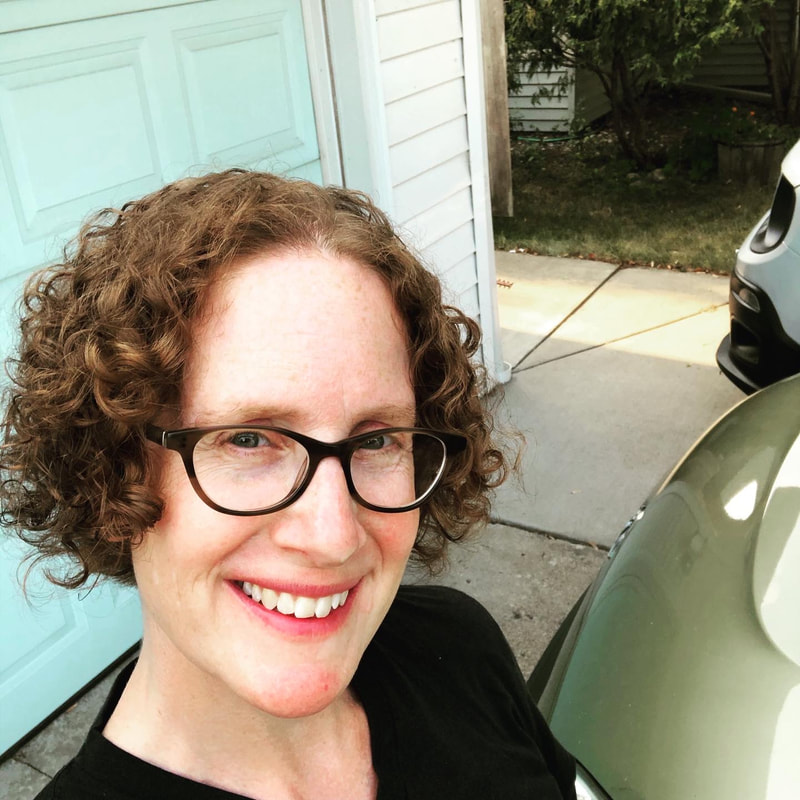

 RSS Feed
RSS Feed
